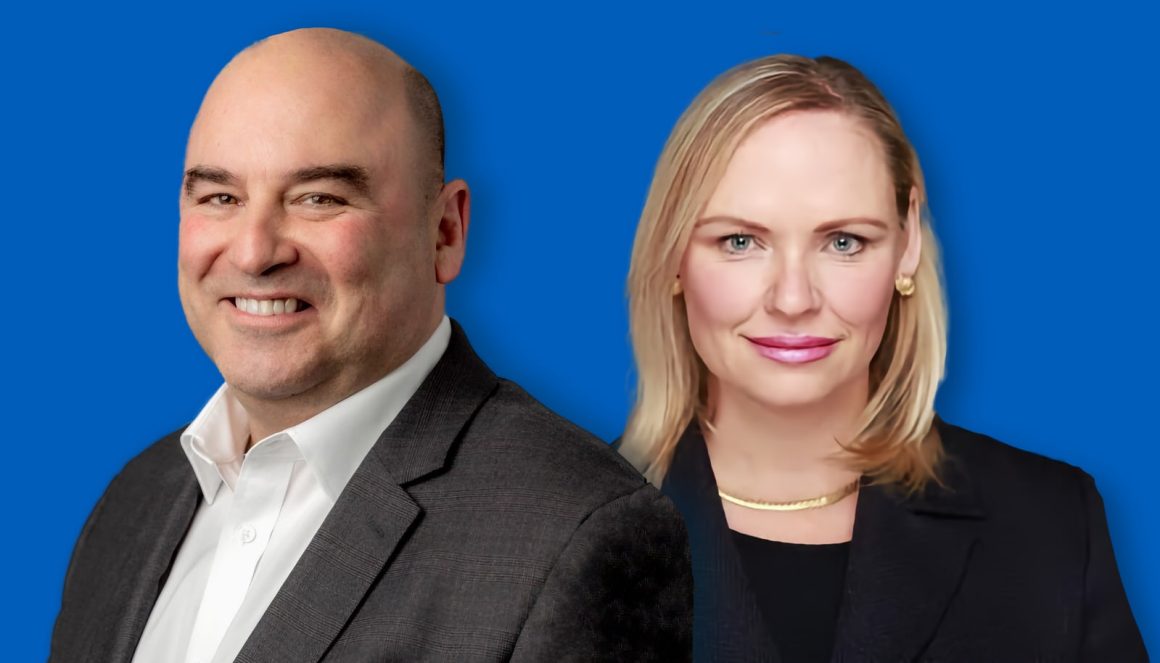When it comes to the Canadian ETF industry, few names resonate more than Tammy Cash and Alain Desbiens. Between them, the two have spent decades shaping how exchange-traded funds are explained, marketed, and distributed in Canada. Both now hold senior leadership positions at BMO ETFs—Cash as Director of Distribution Strategy and Desbiens as Vice Chair, BMO ETFs.
In a recent episode of Insight is Capital with host Pierre Daillie, the pair reflected on their early days, the resilience required to help grow a fledgling industry, and their vision for the future of investing in Canada. What emerged is a candid, deeply insightful discussion on education, disruption, advisor partnerships, and the next chapter for ETFs.
The Early Days: Education and Disruption
Cash recalls her unconventional path into the industry:
“Going way back to when I was just a young gal. I started my career in finance and it was a bit of an anomaly for me, having studied law and made my way in the consulting world and then working in the hedge fund space. And what drew me to ETFs was I have a twin sister… she was working at Claymore Investments… and she kept talking about the ETF instrument and the democratization of investing and low fees and transparency. And she really candidly converted me and educated me about the benefits.”
For Desbiens, who joined BMO ETFs in 2010 when the firm had just 28 products and half a billion in assets under management, skepticism was the norm:
“People at the time were telling me, what, you’re going to sell ETFs at BMO? ETFs are not here to stay. It’s just a trend. This is the biggest mistake that you’re making going there.”
What struck him most was the disruptive potential:
“At the beginning I saw that the ETF could be disruptive and it could create waves and I loved it. I knew we were onto something.”
Lessons Learned: Resilience, Partnership, and Canadian Roots
When asked what they learned building the industry from scratch, Cash’s answer is immediate:
“Resilience, for one.”
She points to the legacy of bringing more than 70–80 enduring funds to market and the importance of listening:
“It really is about that education and the intersection of education and partnership today… a lot of it is listening to advisors as well and adapting… but at its core it still comes down to making sure that we provide clarity, congruency and real education to advisors and investors.”
Desbiens is emphatic about how uniquely Canadian the ETF story truly is:
“If there’s one thing I’ve learned in the past 14 years it’s that it’s an advantage to be Canadian. Being a Canadian provider and having a PM team based in Canada was and is still an asset for advisors and Canadian investors and for education. Remember... the first ETF in the world was [invented] in Canada. The first fixed income ETF in the world was [invented] in Canada. So we need to be proud of this.”
Tools, Technology, and the Value of Advice
Both leaders emphasize that ETFs alone aren’t enough—what matters is the ecosystem of tools, content, and education that helps advisors put them to work.
Desbiens is unequivocal:
“Having a great selection of ETFs is key but having the tools to explain them, to put them in perspective, having tools to help portfolio construction is really key… So I think if there’s one thing that I’ve learned in the past 14 years, it’s that I want to bring this back in my new role.”
Cash agrees, pointing to BMO’s commitment to providing objective, industry-wide resources:
“It is absolutely intended to be providing a gold-standard education to those exploring investment solutions and increasingly portfolio construction. And that stood out to me as a place I would want to be that was aligned with that kind of commitment that leads to transparency, that leads to a better understanding overall.”
This aligns with their shared belief in the enduring value of advice. As Cash puts it:
“This is the value of advice… ensuring that I [and advisors] operate with integrity. So purpose and impact for me are the two things that come to mind.”
Women in ETFs and the Next Generation
One of the most personal and passionate sections of the discussion comes when Cash describes her role as Global Co-President of Women in ETFs (WE):
“I’ve been involved with WE since 2013, so it’s 11 years roughly of service for me and a passion for me with an aim to connect, support and inspire women working in the ETF industry. And we are now up to 38 chapters across the globe.”
She highlights the importance of outreach beyond traditional commerce programs:
“We really want to make sure that we’re telling the story of viable careers in technology, in operations, in marketing, and on the trading desk, even if you didn’t pursue a commerce degree.”
The opportunity is immense:
“Today, sadly, we still sit at 17% representation of women as financial advisors in Canada… given the seismic shift that’s happening in terms of wealth managed by women approaching 5 trillion by 2030 and the opportunity that that presents.”
Looking Ahead: The Next Trillion
Desbiens predicts that the Canadian ETF industry will continue its hockey-stick trajectory:
“The first article I wrote when I joined, you know, as a columnist at Investment Executive—I wanted to make a bang. So I said, hey, you know, I’m going to speak to you about the next one trillion dollar industry. And funny enough, I think in April and May when I saw the PwC 2025 report saying that we could see that in Canada by June 2029. So [it’s happening] even faster than I predicted.”
But with growth comes complexity, he cautions:
“Innovation is attracting investors, but brings more complexity. Competition will still heat up. We’ve never seen so much competition, so much noise, because there’s a lot of new product. I still think education is going to be key in 2030 because that doesn’t change.”
Cash sees it as opportunity rather than challenge:
“It’s more about opportunity and the opportunity to make sure that we are adapting with investor needs and with the toolbox that we’ve created and making sure that advisors and investors are aware it exists.”
Legacy and Impact
For Desbiens, legacy is personal:
“I hope that they will remember that I’ve tried over the years to build that value proposition and that it evolves around trust, ethics and knowledge… I hope that they remember that I love what I do, that I’m passionate about what I do and about our industry.”
Cash echoes this sentiment:
“It’s making an impact and an impact in the way I think that I’ve shown up as a leader… It’s all about a curiosity for how to better serve the people. And in this instance, thinking ahead to advisors and who they serve and doing what’s right for them and by them and ensuring that I operate with integrity.”
Conclusion
The conversation with Tammy Cash, and Alain Desbiens is more than a reflection on past achievements—it is a vision for the future of ETFs in Canada. Their shared commitment to education, transparency, partnership, and purpose shines through.
As Cash and Desbiens remind us, they and ETFs may have disrupted the industry, but their real power lies in helping advisors serve their clients better. And in their hands, the future of Canadian ETFs looks not only innovative but deeply human.
Copyright © AdvisorAnalyst














